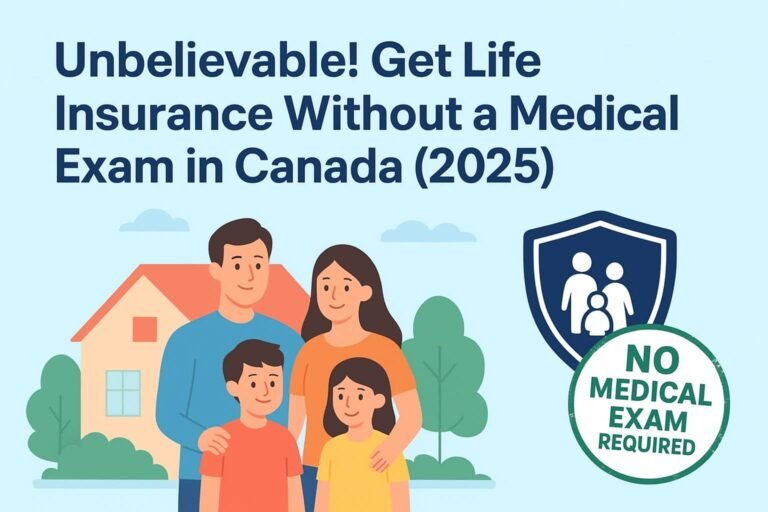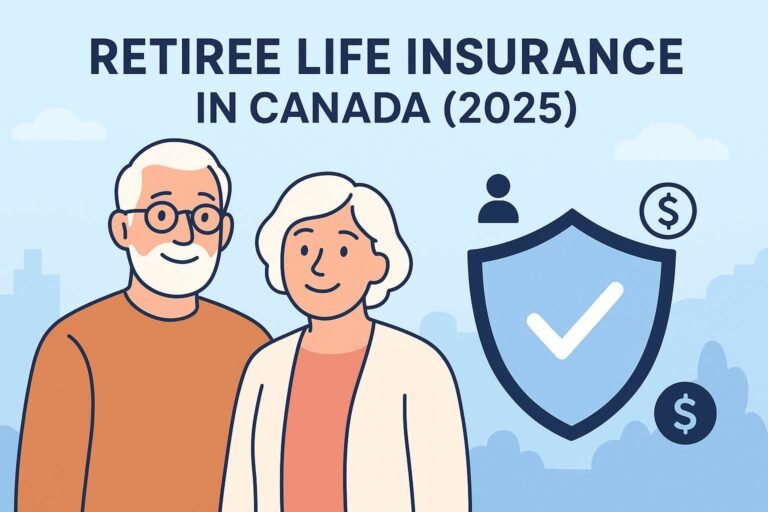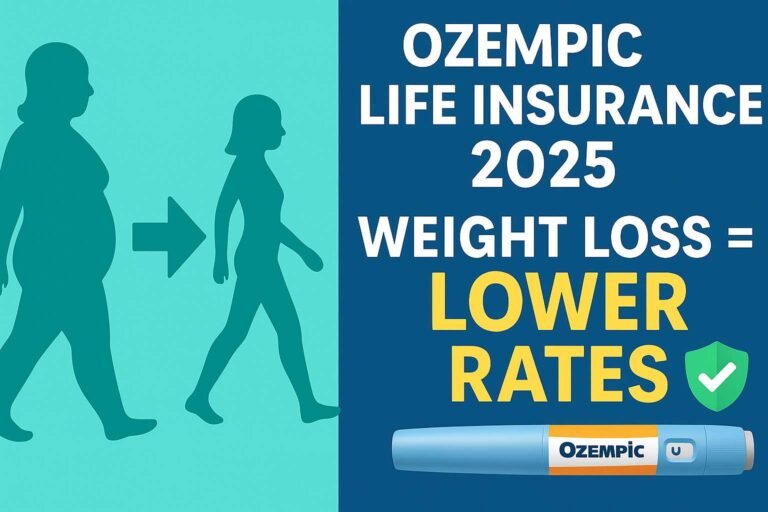Top Life Insurance Plans for Cancer Survivors in 2025

Cancer Survivor Life Insurance: Finding Your Best Options
Surviving cancer? That’s a huge deal. It really shows how strong and resilient you are, and seriously, how far modern medicine has come. As you figure out life after treatment, you’re probably focused on getting back on track, enjoying every moment, and planning for what’s next. For a lot of folks, that “what’s next” includes making sure their loved ones are financially protected – and that’s where life insurance comes in.
But hey, trying to find good life insurance as a cancer survivor can feel pretty overwhelming. The good news is, with a better understanding of cancer and improved outlooks, getting life insurance after cancer is actually more do-able than ever before. This complete guide is going to walk you through the top life insurance plans for cancer survivors in 2025, giving you the lowdown, strategies, and all the key info you need to make a smart choice.
Table of Contents
Why is Life Insurance Different for Cancer Survivors?
Before we dive into specific plans, it’s super important to get why life insurance companies look at applications from cancer survivors differently. Insurers check out risk based on someone’s health, and if you’ve had cancer, it naturally brings up questions about your future health and how long you’ll live. They’ll look at a bunch of stuff, including:
- Type of Cancer: Some cancers are just tougher or more likely to come back than others.
- Stage at Diagnosis: Cancers caught early usually come with less risk than those found at later stages.
- Treatment You Got: What kind of treatment, how long it lasted, and how well it worked are all big factors.
- Date of Remission/Last Treatment: The longer you’ve been in remission, the less risky you seem. A lot of insurers have “waiting periods” (like 2-5 years) before they’ll even think about offering coverage, or give you better rates cancer survivor life insurance.
- Current Health Status: Any lingering side effects, ongoing check-ups, or new health issues will be checked out.
- Lifestyle Stuff: Smoking, drinking, and your overall health habits still matter cancer survivor life insurance.
It’s crucial to be totally honest and give them all the medical paperwork they ask for. This helps the insurer accurately figure out your risk and offer you the most fitting cancer survivor life insurance policy. https://primelifecover.com/yourwebsite-com-ai-life-insurance-usa/
Understanding Your Options: Types of Life Insurance
Generally, there are two main kinds of life insurance:
- Term Life Insurance: This covers you for a set period (like 10, 20, or 30 years). If you pass away during that term, your beneficiaries get the money. Term life is usually more affordable and often the easiest option for cancer survivors to get, especially if it’s been a while since their treatment.
- Permanent Life Insurance: This covers you for your whole life and often includes a cash value that grows over time. Think Whole Life and Universal Life. While they offer lifelong security, permanent policies are usually pricier and can be tougher for cancer survivor life insurance. to obtain right after treatment.

Top Life Insurance Plans for Cancer Survivors in 2025: Detailed Breakdown
The “best” plan isn’t a one-size-fits-all answer. It totally depends on your personal situation, the kind of cancer you had, how long you’ve been in remission, your overall health, and what your financial goals are. But here are some of the top things to consider and strategies for cancer survivors in 2025:
| Life Insurance Type | Who It’s For | Key Features & Considerations | Advantages | Disadvantages |
| Standard Term Life | Cancer survivors 5+ years in remission, no recurrence, in great health. | Needs a thorough medical check, including reviewing records and possibly an exam. Rates are super competitive if you qualify. | Most affordable for a lot of coverage; perfect for long-term survivors. | Hardest to qualify for; often needs long waiting periods; tough medical review. |
| Simplified Issue Life | Cancer survivors 2-5 years in remission, or with minor health issues. | Fewer medical questions, often no medical exam needed. Faster approval process. Premiums are higher than standard term; lower death benefit limits. | Easier and quicker approval; less invasive application. | Higher premiums than standard; lower coverage amounts. |
| Guaranteed Issue Life | Cancer survivors with major health challenges, recent diagnosis, or turned down by other insurers. | Guaranteed to be accepted, no matter your health. Highest premiums for the lowest coverage. Comes with a “graded death benefit” period (2-3 years); full payout only if death happens after this period (if it’s not an accident). | Gives you coverage when nothing else does; no medical questions or exams. | Super high cost for low coverage; graded death benefit. |
| Group Life Insurance (Employer) | Any cancer survivor whose job offers it as a perk. | Often no medical check for basic coverage. Coverage amounts are usually lower. Buying extra coverage might need some review. | Often free or cheap; guaranteed basic acceptance. | Coverage tied to your job; not easily transferable; lower base coverage. |
| Return of Premium (ROP) Term | Long-term cancer survivors in excellent health looking for a financial safety net. | Pricier than regular term life. If you outlive the term, all your premiums come back to you. Very strict medical review because of the premium return guarantee. | Premiums returned if you don’t use the policy; peace of mind. | Higher premiums; super tough to qualify for if you have any significant health history. |
| Whole Life Insurance | Cancer survivors 7-10+ years in stable remission, wanting lifelong coverage and cash value growth. | Permanent coverage with fixed payments and guaranteed cash value growth. Needs a very thorough medical check. | Lifelong coverage; builds cash value; predictable payments. | Most expensive permanent option; very hard to qualify for with recent cancer history. |
Strategies for Cancer Survivors Applying for Life Insurance in 2025

- Wait as Long as You Can (Within Reason): The more time that passes since you’ve been in remission, the better your odds of getting approved for more favorable rates and options. Every year post-treatment improves your prospects for cancer survivor life insurance.
- Have All Your Medical Records Ready: Get all the detailed info about your diagnosis, treatment plan, pathology reports, follow-up care, and current health status prepared. This helps the folks reviewing your application make smart decisions for your life insurance as a cancer survivor.
- Work with an Independent Agent Who Knows Their Stuff with High-Risk Cases: These agents work with lots of different insurance companies and really get the ins and outs of reviewing applications for cancer survivors. They can shop around for you to find the best rates and policies for cancer survivor life insurance.
- Think About a Graded Benefit Policy to Start: If you’re early in remission, a graded benefit policy (like Guaranteed Issue) might be your only shot. You can always apply again for a better policy once you’ve been in remission for longer cancer survivor life insurance.
- Boost Your Overall Health: Focus on keeping up a healthy lifestyle – eat well, exercise regularly (as your doctor suggests), and steer clear of smoking and too much alcohol. This can actually help when they’re reviewing your cancer survivor life insurance application.
- Don’t Give Up After Just One “No”: Different life insurance companies have different rules. Just because one insurer says no doesn’t mean another one won’t say yes to cancer survivor life insurance.
- Be Honest and Open: Hiding stuff about your health history can lead to the policy being canceled when your family needs it most. Being upfront is always the best way to go when applying for cancer survivor life insurance. usa.gov

Key Things to Know for 2025 and Beyond
The life insurance world is always changing, and with all the medical breakthroughs, the way they review applications is getting more precise. In 2025, expect:
- More Data Dive: Insurers are using smarter computer programs to figure out risk, which could mean more personalized rates for you.
- Focus on Lifestyle: Beyond your cancer history, your overall health and wellness habits will matter even more for cancer survivor life insurance.
- Going Digital: The application process might get smoother, with online tools and quicker approvals for those who qualify.
How the Application Process Usually Works
When you apply for cancer survivor life insurance, here’s typically what happens:
- First Chat: You give basic info to an agent or directly to an insurer.
- Send in Your Application: You fill out a detailed form, including tons of health questions.
- Gathering Medical Info: The insurer will ask your doctors for your medical records. They might also ask for a basic medical exam (like blood and urine tests, blood pressure, etc.).
- Underwriting Review: An underwriter checks all the information to figure out your risk.
- Policy Offer/Denial: The insurer either offers you a policy with a specific price or says no.
- Accept the Policy: If you like the offer, you pay your first premium, and your policy starts!

Frequently Asked Questions (FAQs) about Life Insurance for Cancer Survivors
Q1: How long do I need to wait after cancer treatment to apply for life insurance?
A1: This “waiting period” really depends on the insurer and the type/stage of cancer you had. For standard policies, insurers usually prefer you to be in remission for at least 2-5 years, and often longer (like 7-10+ years) for the best rates. Simplified issue policies might have shorter waits, and Guaranteed Issue policies have no waiting period to apply, but usually a graded death benefit period for cancer survivor life insurance.
Q2: Will my premiums be higher because I had cancer?
A2: Generally, yes, they likely will be higher than for someone who never had cancer, especially if you’re not long into remission or your cancer was aggressive. But the exact increase depends on tons of things like the type of cancer, stage, treatment, and how long you’ve been in remission. The longer and healthier your remission, the closer your rates might get to standard ones for cancer survivor life insurance.
Q3: Do I need a medical exam to get life insurance as a cancer survivor?
A3: For standard and some simplified issue policies, a medical exam is often required to check your current health. However, many simplified issue policies and all guaranteed issue policies don’t require a medical exam. Your medical records will always be looked at for any type of medically reviewed policy, though.
Q4: What if I’m turned down for traditional life insurance?
A4: Don’t throw in the towel! If you’re denied for traditional or simplified issue policies, you still have choices. Think about Guaranteed Issue life insurance, which guarantees acceptance no matter your health. Also, check out group life insurance through your job, as these often don’t require a medical check for basic coverage. Working with an independent agent who specializes in “high-risk” cases can also open doors to more specific carriers for cancer survivor life insurance.
Q5: Should I tell them my full cancer history, even if it was ages ago?
A5: Absolutely. Being completely honest is super important. Insurance applications are legal documents, and if you hide stuff about your health history, your policy could be canceled (rescinded) right when your family needs it most. It’s way better to be upfront, even if it means a higher premium, than to risk your policy being worthless when it comes to cancer survivor life insurance.
Disclaimer
Just so you know, the info in this blog post is just for general knowledge and isn’t financial, medical, or legal advice. It’s not meant to diagnose, treat, cure, or prevent any illness or financial problem. Life insurance rules can vary a lot between companies and can change. Always chat with a qualified, licensed insurance pro, a financial advisor, and your doctor to talk about your specific situation and figure out what’s best for your individual needs. This blog post isn’t endorsing any specific insurance company or product.
Conclusion: Securing Your Future with Confidence
Being a cancer survivor is seriously an amazing accomplishment. Don’t let your past health stop you from getting the financial protection your loved ones deserve. While finding life insurance might require a bit more effort, there are plenty of solid cancer survivor life insurance options available in 2025.
By understanding the different types of plans, going about the application process smartly, and working with knowledgeable pros, you can totally find a top life insurance plan that gives you peace of mind and keeps your family’s financial future safe. Your journey as a survivor is all about living life to the fullest, and that includes ensuring a secure legacy.
Author Box
Written by DN Patel
Founder & Life Insurance Specialist
Helping families in USA, UK, Canada & Australia choose the right life cover.
Take the Next Step: Get Your Personalized Life Insurance Quote Today!
Ready to check out your options and find the best cancer survivor life insurance plan for your unique situation as a cancer survivor? Don’t wait to protect your loved ones’ future.
📢 Stay connected for the latest insurance tips, updates, and guides!
👉 Follow us on Facebook







One Comment